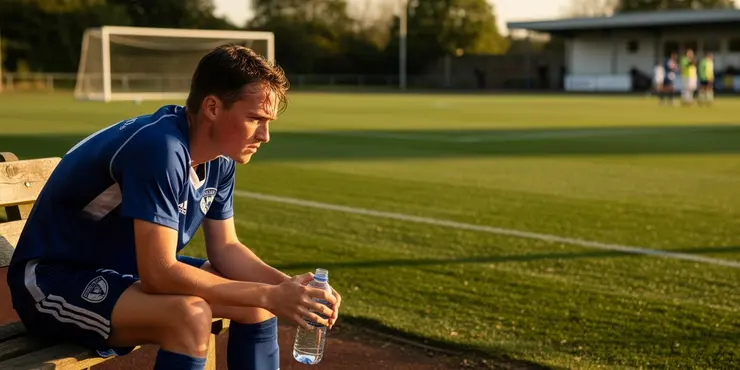
Find Help
More Items From Ergsy search
-
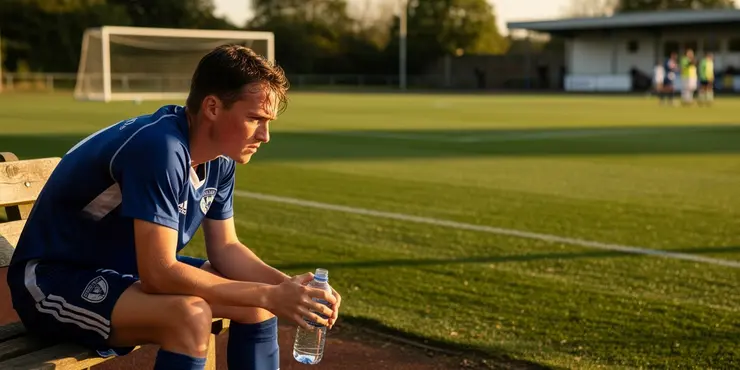
Can players return to play on the same day after a suspected concussion?
Relevance: 100%
-
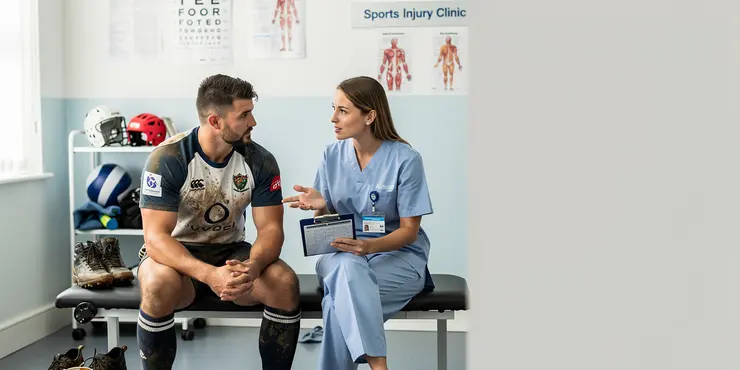
What support is available for rugby players who suffer concussions?
Relevance: 60%
-
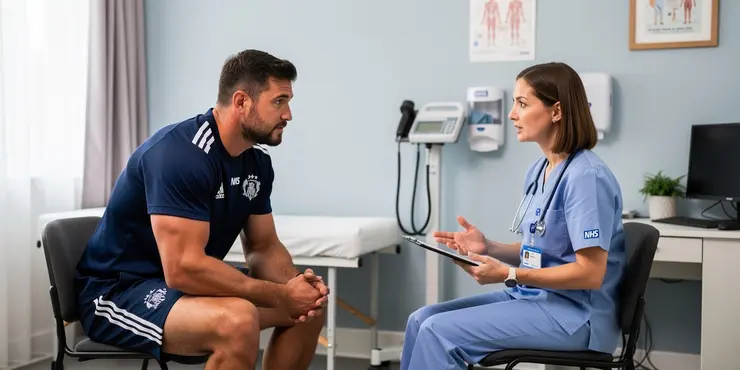
How do concussions impact long-term health in rugby players?
Relevance: 54%
-
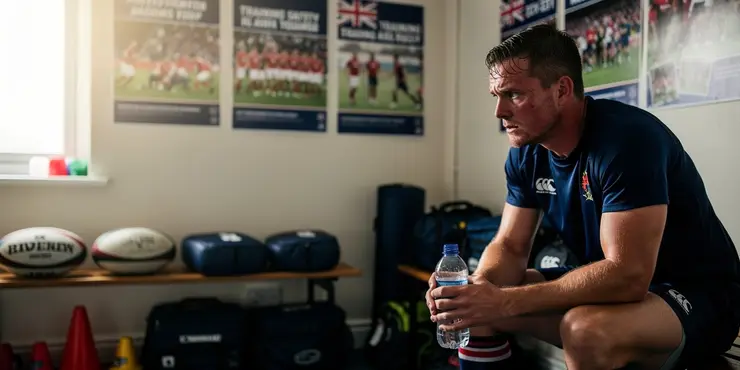
Is there a protocol for managing concussions in rugby?
Relevance: 51%
-
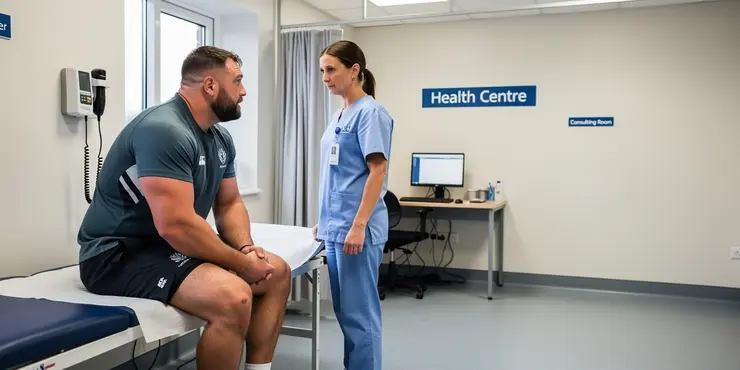
Are Concussions common in Rugby?
Relevance: 49%
-
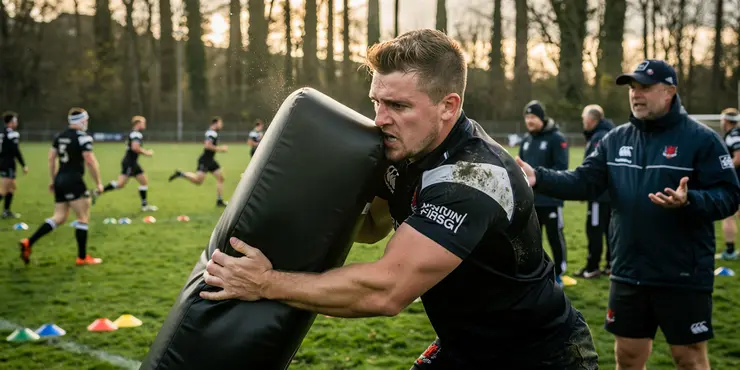
What causes concussions in rugby?
Relevance: 45%
-
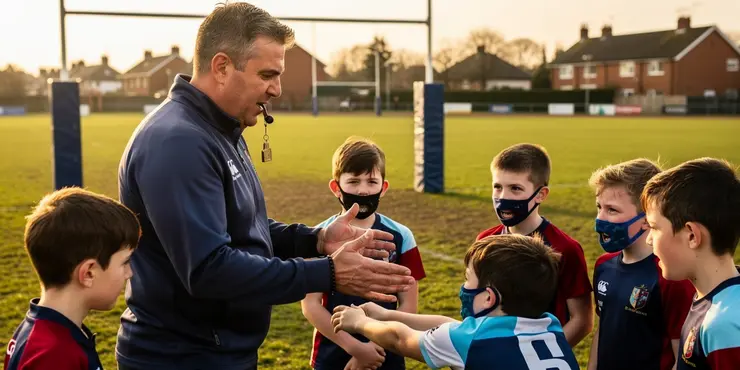
How can concussions be prevented in rugby?
Relevance: 44%
-
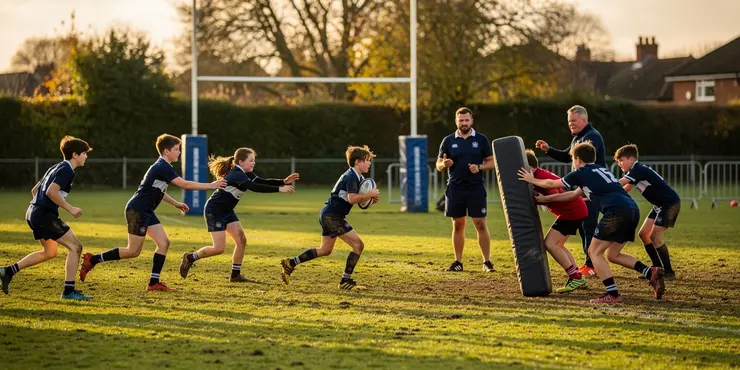
What age groups are most at risk for concussions in rugby?
Relevance: 41%
-
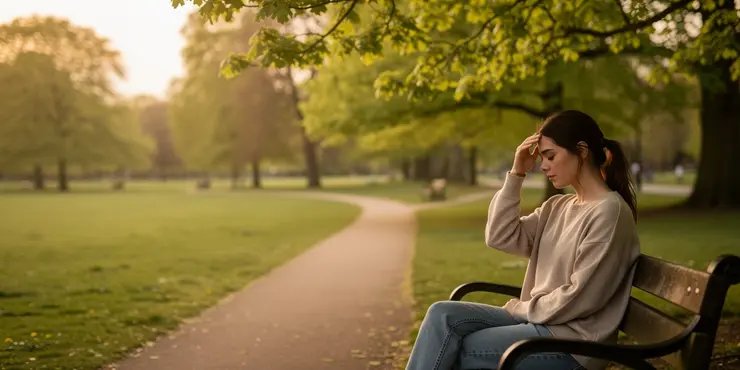
When is it safe to return to normal activities after a concussion?
Relevance: 40%
-
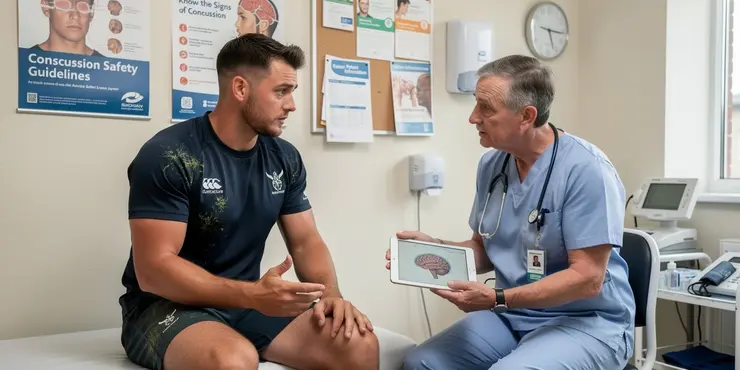
Are helmets required in rugby to prevent concussions?
Relevance: 40%
-
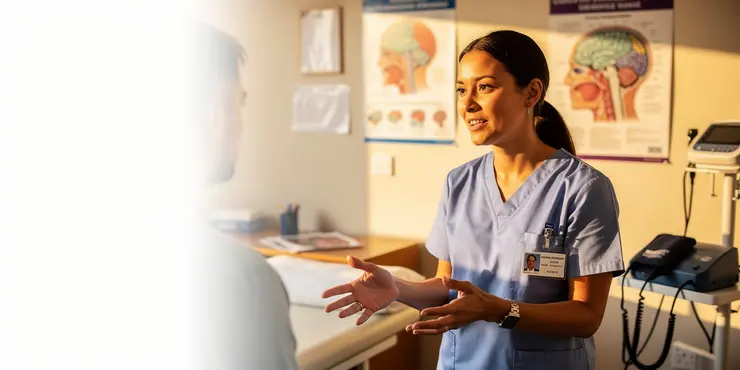
When is it safe to return to normal activities after a concussion?
Relevance: 40%
-
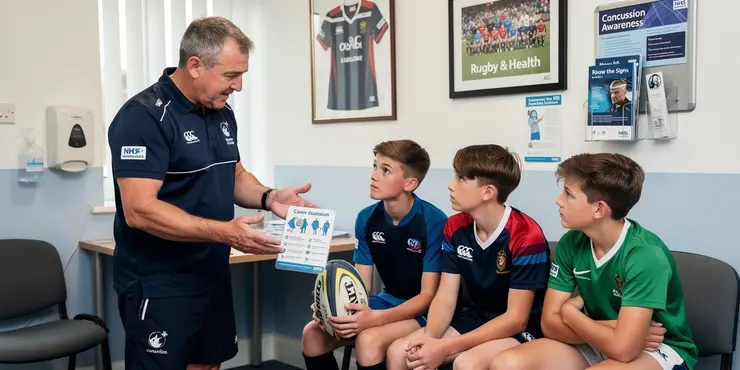
Is there a difference in concussion rates between amateur and professional rugby?
Relevance: 39%
-
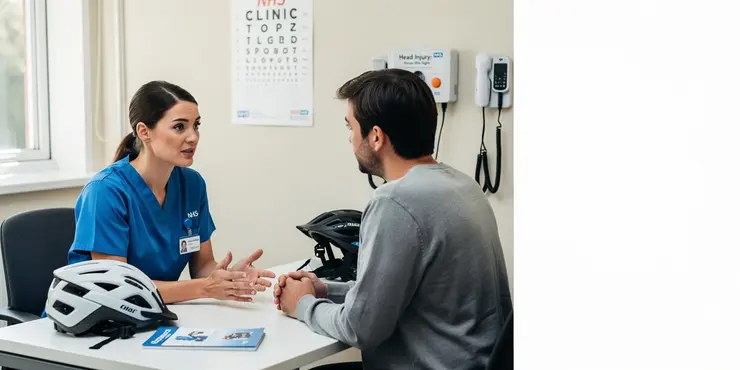
Is there any way to prevent concussions?
Relevance: 38%
-
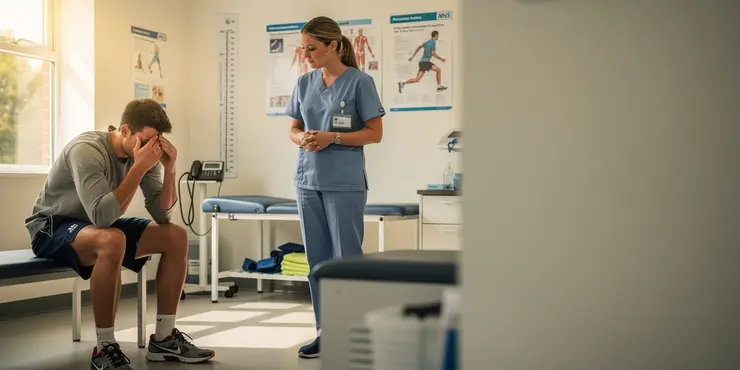
What is Concussion?
Relevance: 37%
-
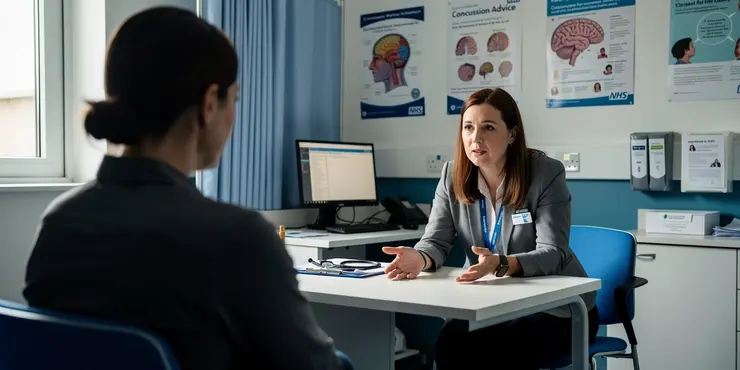
How is a concussion diagnosed?
Relevance: 35%
-
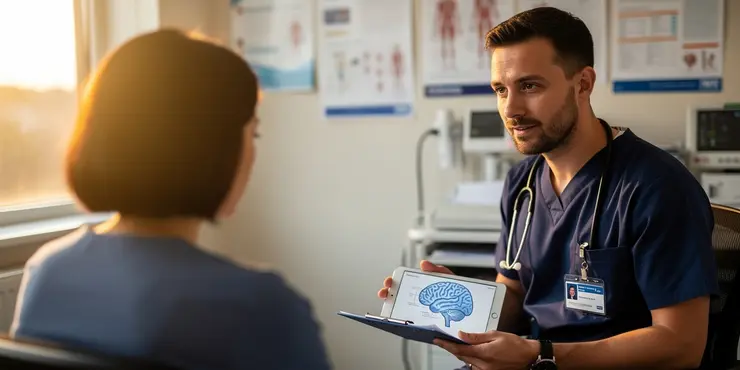
Is headache a symptom of a concussion?
Relevance: 33%
-
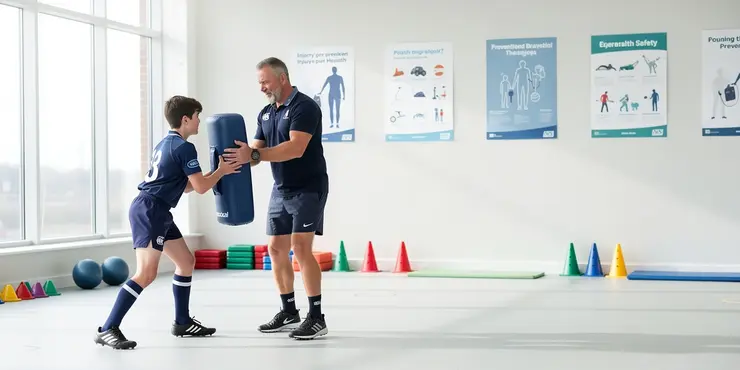
How can concussions be prevented?
Relevance: 32%
-
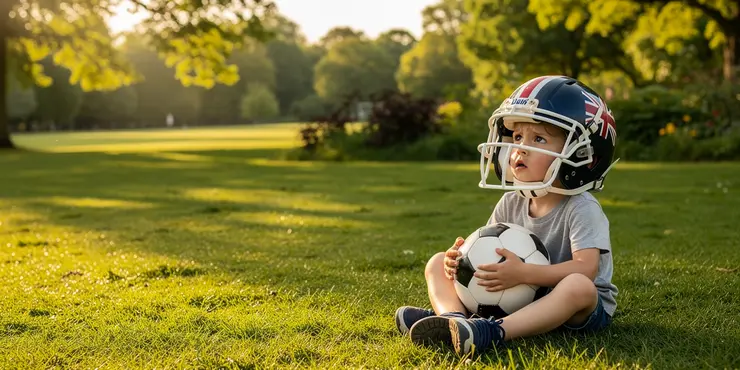
Are children more susceptible to concussions than adults?
Relevance: 32%
-
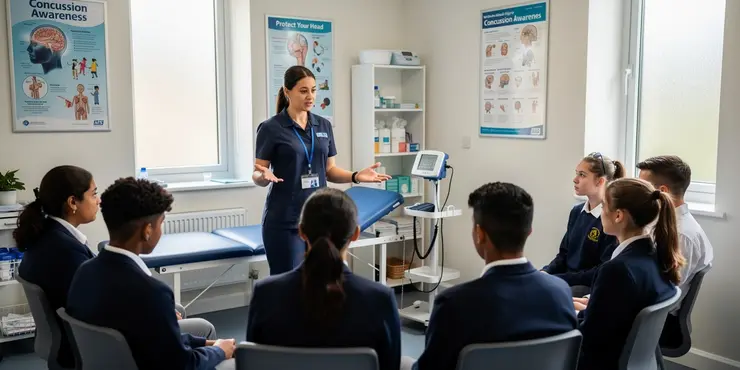
What role do schools play in managing concussions?
Relevance: 32%
-
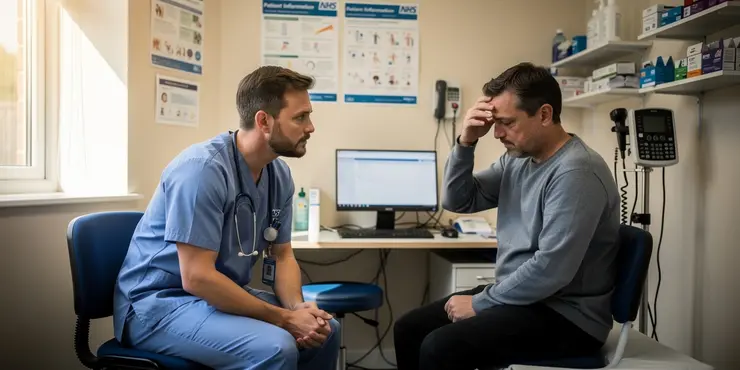
How is a concussion diagnosed?
Relevance: 31%
-
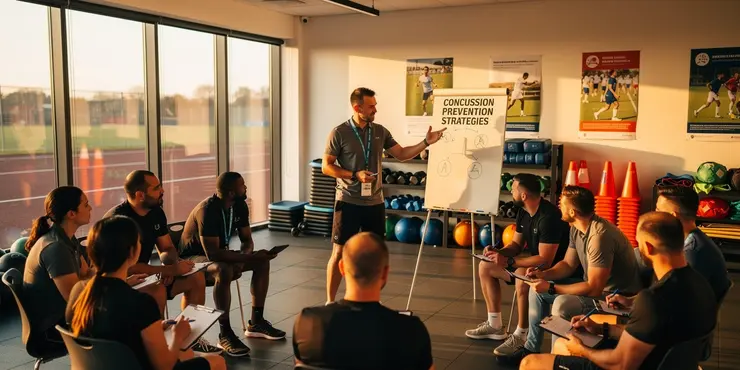
Is training available for coaches to help prevent concussions?
Relevance: 31%
-
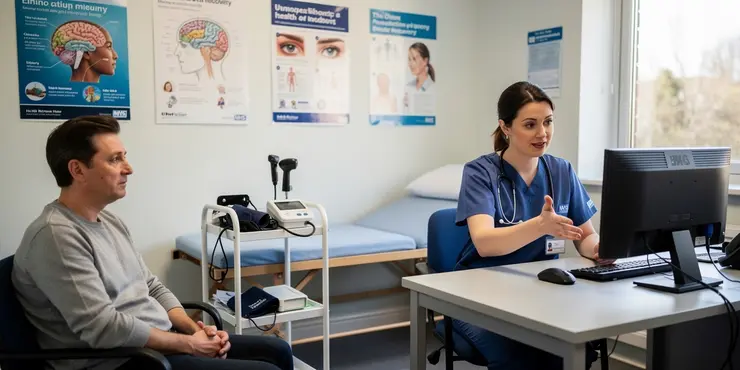
Should people with a concussion avoid screens and technology?
Relevance: 29%
-
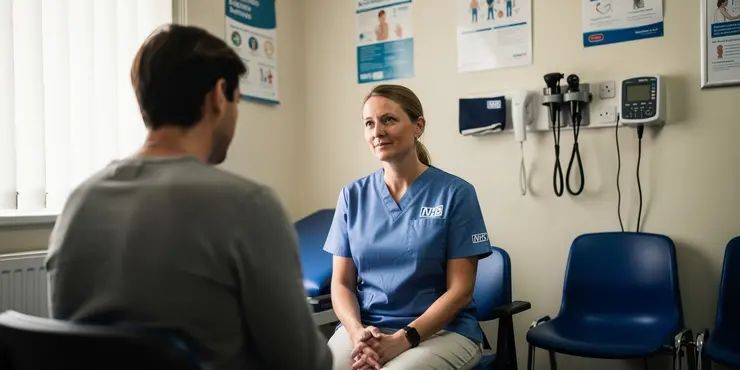
What are common symptoms of a concussion?
Relevance: 28%
-
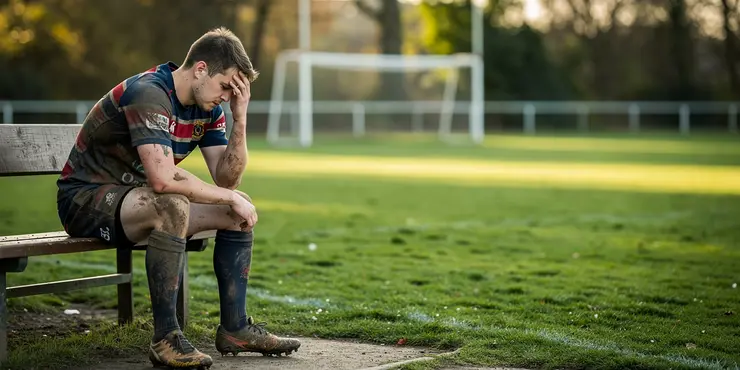
Can playing sports increase the risk of a concussion?
Relevance: 28%
-
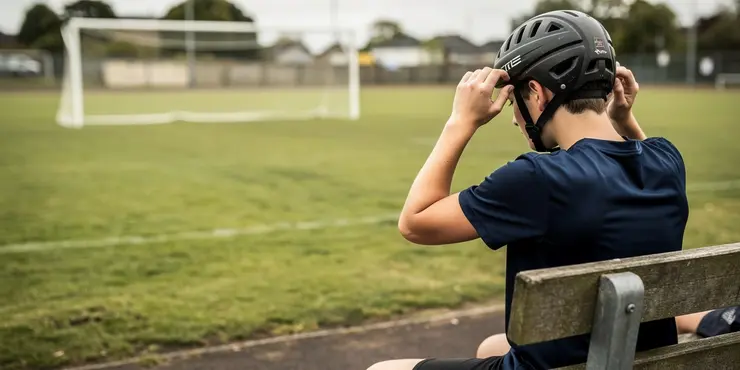
How can concussions be prevented?
Relevance: 27%
-
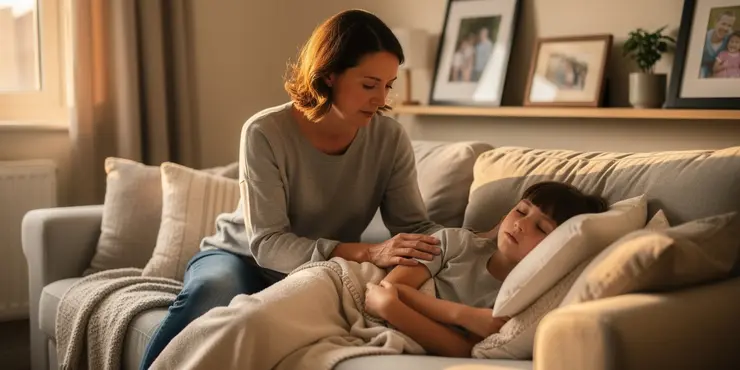
Is it safe to sleep after a concussion?
Relevance: 27%
-
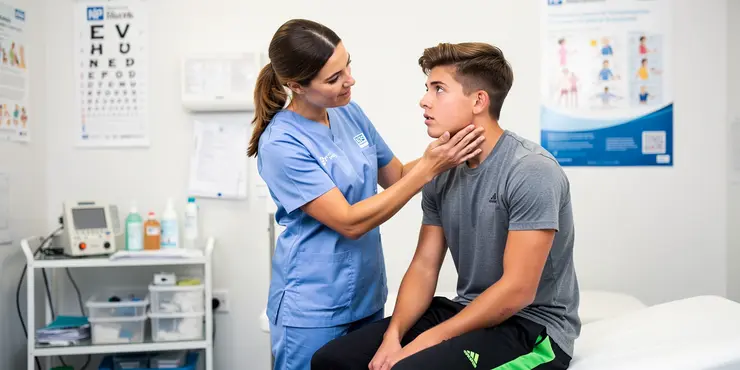
Can concussions occur without a direct blow to the head?
Relevance: 27%
-
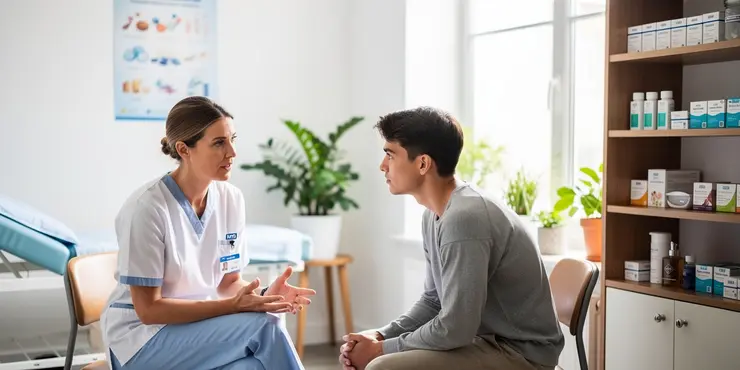
Can concussions lead to mental health issues?
Relevance: 27%
-
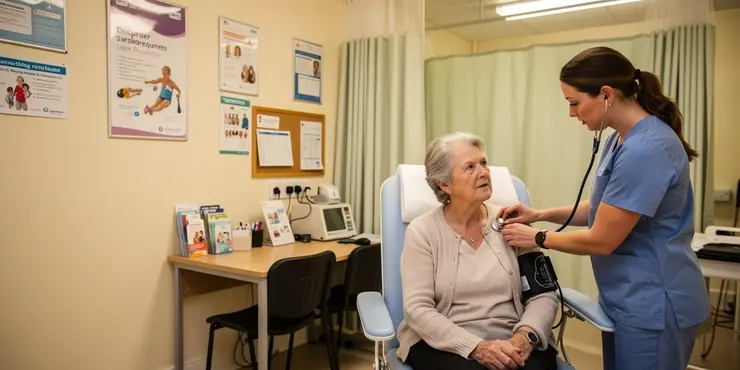
Is it safe to sleep after a concussion?
Relevance: 26%
-
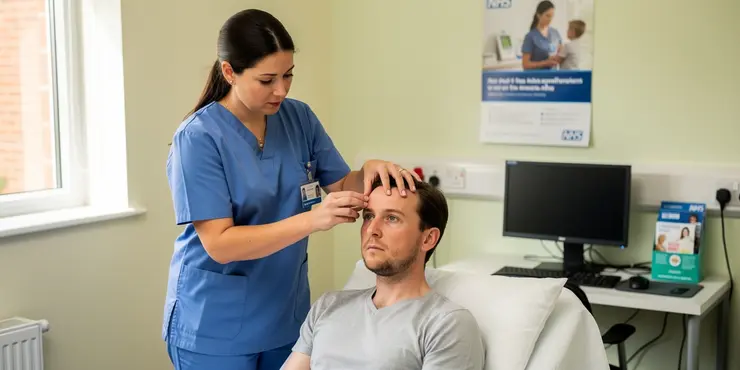
What immediate steps should be taken if someone has a concussion?
Relevance: 26%
-
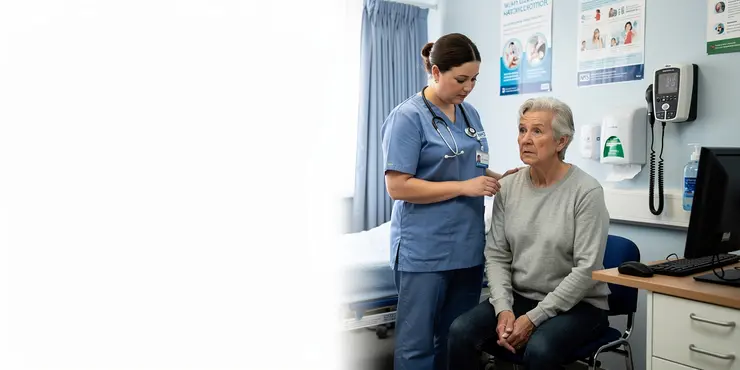
Can a concussion cause memory problems?
Relevance: 25%
-
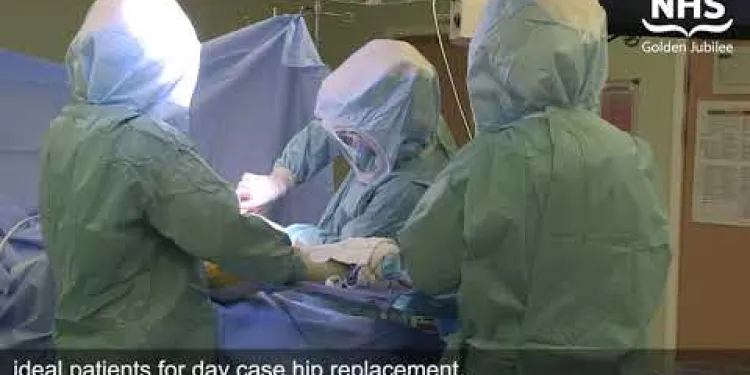
Same day discharge for NHS Golden Jubilee’s hip replacement patients
Relevance: 24%
-
Undergoing day case surgery at University Hospitals Bristol
Relevance: 19%
-
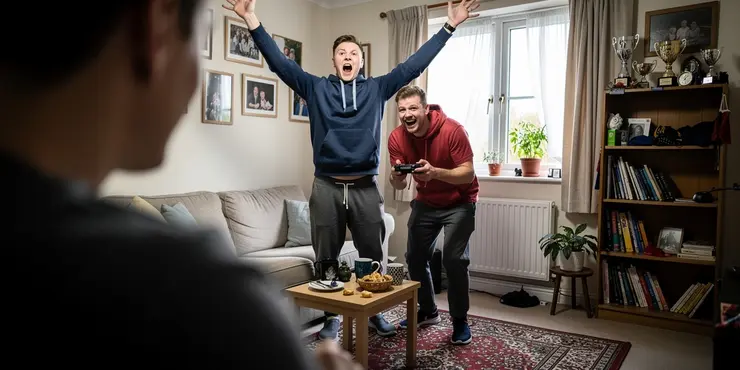
What happens if two players from the same postcode win?
Relevance: 19%
-
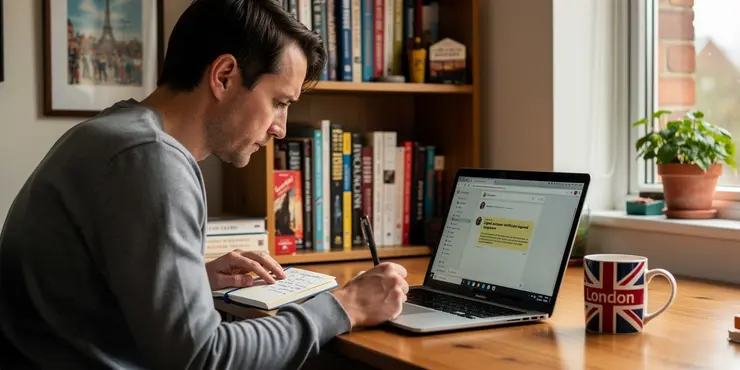
What should I do if I suspect a scam?
Relevance: 19%
-
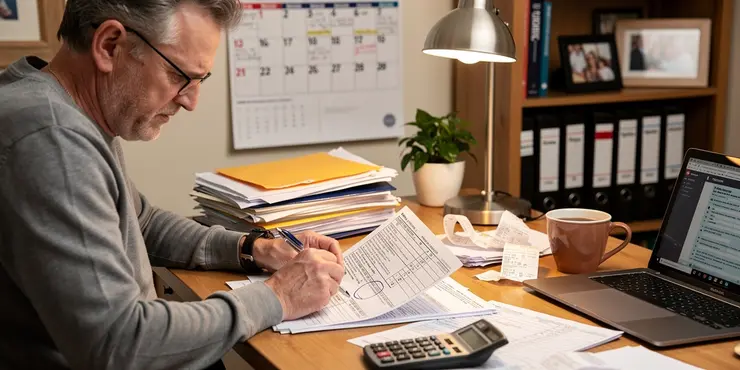
What if I make a mistake on my tax return?
Relevance: 18%
-
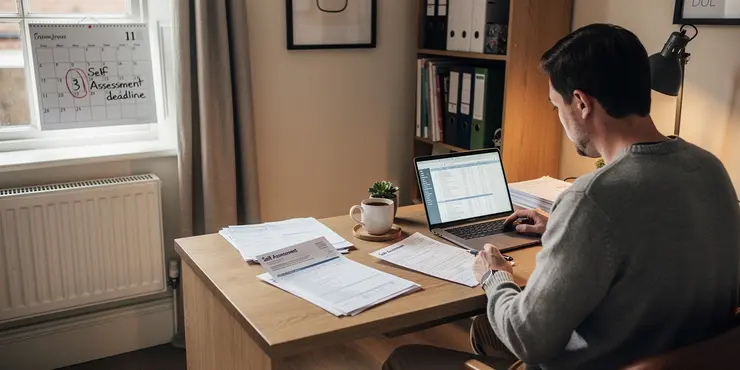
When is the deadline for submitting my Self Assessment tax return?
Relevance: 18%
-
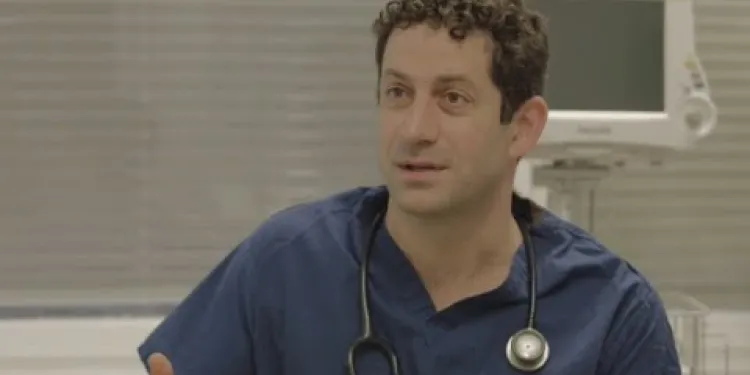
What to expect on the day of your operation
Relevance: 18%
-
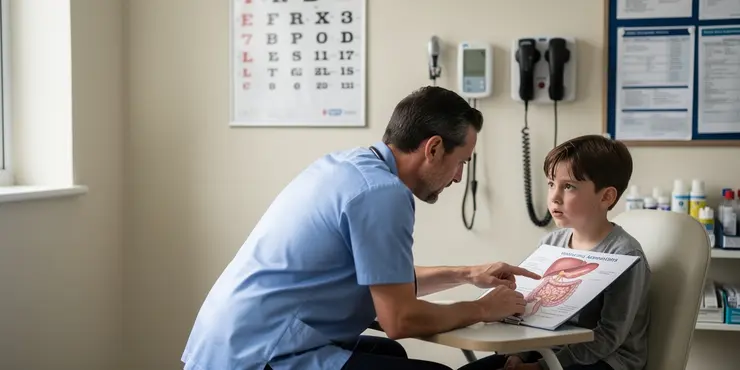
What is the likelihood of needing surgery for suspected appendicitis?
Relevance: 18%
-
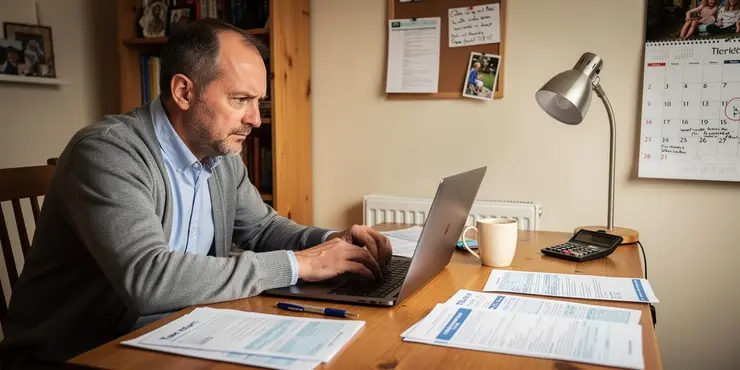
Can I amend an online tax return?
Relevance: 18%
Can Players Return to Play on the Same Day After a Suspected Concussion?
Understanding Concussion
Concussion is a type of brain injury resulting from a significant impact to the head or body, causing the brain to move rapidly within the skull. Symptoms can vary widely, including dizziness, headaches, confusion, and balance issues. Recognising the seriousness of even mild concussions is crucial because symptoms can evolve and worsen over time, necessitating vigilant monitoring.UK Guidelines on Concussion Management
In the UK, sporting bodies and health professionals follow strict guidelines regarding concussion management. The consensus is clear: players suspected of having a concussion should not return to play on the same day. This "if in doubt, sit them out" approach is fundamental to ensuring player safety and preventing further injury. Allowing time for adequate assessment and rest is critical to the recovery process.Risks of Same-Day Return to Play
Returning to play on the same day can exacerbate the injury, increasing the risk of more severe symptoms or complications such as Second Impact Syndrome, which can be life-threatening. Cognitive and physical rest recommends giving the brain the necessary time to heal. Players who resume activity prematurely may experience prolonged recovery periods and more intense symptoms, thereby impacting their health and future playing capabilities.Steps for Safe Return to Play
Once a concussion is suspected, players should be removed from play immediately and assessed by medical professionals. Return to play should follow a step-by-step protocol once all symptoms have resolved, which involves gradual reintroduction to physical activity under medical supervision. Players must be symptom-free at rest and during exertion before returning to full contact sports.Promoting Awareness and Education
Increasing awareness and education about concussions among players, coaches, teams, and parents is vital. Understanding the seriousness of concussions and the importance of appropriate recovery practices can foster safer playing environments and long-term health benefits. Ensuring adherence to these established guidelines ultimately protects players and enhances the integrity of sports.Can Players Go Back to Play on the Same Day After a Possible Concussion?
What is a Concussion?
A concussion is a type of brain injury. It happens when a big hit to the head or body makes the brain move quickly inside the skull. Signs of a concussion can be different for everyone. They might have dizziness, headaches, feeling confused, or trouble balancing. Even small concussions are serious. Signs can change and get worse later, so watching carefully is very important.Concussion Rules in the UK
In the UK, sports groups and health experts follow strict rules about concussions. The rule is clear: if a player might have a concussion, they should not play again on the same day. This rule is "if in doubt, sit them out." It keeps players safe and stops more injuries. Players need time to be checked and to rest to get better.Why Not to Go Back to Play the Same Day
Playing again on the same day can make the injury worse. There is a risk of serious problems like Second Impact Syndrome, which can be very dangerous. Resting the brain helps it heal. If players go back too soon, they might feel worse for a longer time and have more health problems which can affect their future playing.How to Safely Return to Play
If someone might have a concussion, they should stop playing right away and see a doctor. They should only start playing again after all signs are gone, following a careful plan. This plan includes slowly starting to play again with a doctor's help. Players must have no signs of a concussion when resting and when being active before playing full sports again.Learning and Knowing About Concussions
More learning about concussions is very important for players, coaches, teams, and parents. Knowing how serious concussions are and how to get better properly helps make sports safer for everyone. Following these rules keeps players safe and makes sports better.Frequently Asked Questions
What is the protocol for players returning to play after a suspected concussion?
Players should not return to play on the same day as a suspected concussion. They must follow a graduated return-to-play protocol and be cleared by a healthcare professional.
Can a player play in a match after recovering from a suspected concussion on the same day?
No, players cannot return to the match on the same day after a suspected concussion, even if they seem to have recovered.
What are the risks of returning to play too soon after a concussion?
Returning to play too soon can lead to a prolonged recovery, increased risk of further injury, and potentially serious consequences like Second Impact Syndrome.
Who decides if a player can return to play following a suspected concussion?
A qualified healthcare professional must assess the player and give clearance before returning to play after a suspected concussion.
What is Second Impact Syndrome?
Second Impact Syndrome is a potentially fatal condition that can occur when a person sustains a second concussion before fully recovering from a previous one.
Why is it important to follow a graduated return-to-play protocol?
A graduated return-to-play protocol ensures the player recovers fully from the concussion and can safely return to their sport, reducing the risk of re-injury.
How long is the minimum rest period after a suspected concussion?
The minimum rest period varies, but players are generally advised to rest and begin a gradual return-to-play process only after symptoms have resolved.
What symptoms indicate a possible concussion?
Symptoms of a concussion can include headache, dizziness, confusion, nausea, blurred vision, sensitivity to light or noise, and memory disturbances.
Are young athletes subject to different return-to-play protocols?
Yes, young athletes often require a more conservative approach, as their brains are still developing, and they may take longer to recover than adults.
Does loss of consciousness always occur with concussions?
No, loss of consciousness does not always occur with concussions. Many concussions happen without the loss of consciousness.
What role do coaches play in managing suspected concussions?
Coaches are responsible for recognising signs of potential concussion and ensuring players are removed from play and assessed by a healthcare professional.
Can protective equipment like helmets prevent concussions?
While protective equipment can help reduce the risk of head injuries, it cannot fully prevent concussions.
What is the first step if a concussion is suspected during play?
The first step is to remove the player from play immediately and have them assessed by a healthcare professional.
Are there long-term effects of concussions?
If not managed properly, concussions can lead to prolonged symptoms and potentially long-term brain health issues.
What is involved in a concussion assessment by healthcare professionals?
A concussion assessment may include a review of symptoms, cognitive testing, balance assessment, and possibly imaging tests to rule out more serious injuries.
What should players do if they might have a concussion?
If a player might have hurt their head, they should stop playing right away.
A doctor needs to check them to be sure they are okay.
The player must rest until the doctor says it's safe to play again.
It can take time to get better, so players need to be patient.
Using pictures or short videos can help players understand what to do.
Players should not play again on the same day if they might have a concussion. They need to follow steps to get better and a doctor must say they are okay before they play again.
Can a player play again on the same day if they get better after a head injury?
No, if a player might have hurt their head, they cannot go back to the game that day, even if they feel better.
What happens if you start playing too soon after a head injury?
If you play sports again too soon after getting hurt, you might take longer to get better. You could also get hurt again more easily. This can cause serious problems like Second Impact Syndrome, which is very dangerous.
Who says if a player can play again after a head bump?
If a player hits their head, they might have a concussion. A concussion is a type of head injury.
A doctor or a special health helper looks at the player. Only the doctor or health helper can say if it is safe for the player to play again.
It is important to listen to the doctor or health helper to keep the player safe.
Tools that can help understand this:
- Pictures: Use pictures to show what happens when someone is hurt.
- Simple Words: Use easy words when talking about head bumps.
- Storytelling: Share a story about someone else with a head bump to help explain.
A doctor or nurse needs to check the player after they bump their head. The player can only play again when the doctor or nurse says it is okay.
What is Second Impact Syndrome?
Second Impact Syndrome is when someone hurts their head again before their first head injury is all better. This can be very dangerous. The brain needs time to heal after getting hurt.
Second Impact Syndrome happens if another head injury occurs too soon. It can make the brain swell a lot, and it is very serious.
Here are some tips to help:
- If you hurt your head, rest and let it heal.
- Tell an adult or a doctor if you hit your head again.
- Always wear a helmet when riding a bike or playing sports.
Use pictures or videos to learn more about head safety. Ask adults to help if you have questions.
Second Impact Syndrome is very dangerous. It can happen if someone gets a second head injury before getting better from the first one.
Why is it important to slowly go back to sports and exercise after an injury?
When you get hurt, it is important to get better slowly. This helps us avoid getting hurt again.
Going back to sports too fast can make us sick or hurt again. Taking time to heal makes us stronger.
We should follow steps to get better:
- Start small – do light exercises.
- Later, do harder exercises when you feel ready.
- Only go back to full sports when you feel okay.
If we are not sure, we can ask a coach or a doctor for help. They can make sure we are safe and ready.
Tools that help:
- Exercise videos for stretching.
- An app to keep track of progress.
- Help from a friend or family to watch us.
A step-by-step plan helps the player get better after a head injury. It makes sure they are ready to play sports again safely and don’t get hurt again.
How much rest do you need after a concussion?
If you hurt your head and might have a concussion, you need to rest to get better. Rest means taking a break from sports and not doing hard exercise.
A concussion is when your brain gets shaken inside your head. You can feel dizzy, tired, or have a headache.
Doctors suggest resting for at least 2 days (48 hours) before doing any activities.
Here are some things that might help:
- Stay in a quiet place.
- Get lots of sleep at night and take naps if you need to.
- Don’t use screens too much, like phones, tablets, or TVs.
- Ask a grown-up to help watch for any signs you are not feeling better.
The time to rest can be different for each player. But, players are usually told to rest and start playing again slowly once they feel better.
What are the signs of a concussion?
A concussion is a type of head injury. Here are some signs to look out for:
- Headache or feeling dizzy
- Feeling tired or sleepy
- Trouble remembering things
- Feeling sick or throwing up
- Seeing stars or feeling confused
If you notice these signs, tell an adult or a doctor. They can help you feel better.
When you hurt your head, it is called a concussion. You might feel dizzy or confused. Your head might hurt. You could also feel sick, like you want to throw up. Some people see things blurry or find bright lights and loud noises hard to stand. You might not remember things well.
Do young athletes have different rules for playing again after getting hurt?
Yes, young athletes need extra care. Their brains are still growing, so it might take them more time to get better than grown-ups.
Do you always pass out when you get a concussion?
A concussion is when your brain gets hurt. Sometimes people think you have to pass out or go to sleep right away when you get a concussion. But that's not true. You can have a concussion without passing out. Remember to always tell an adult if you hit your head.
To help understand this better, you can use pictures or videos about concussions. Talking with someone about it can also help.
No, you do not always pass out when you have a concussion. Many people get a concussion and stay awake.
What do coaches do when they think someone has a concussion?
Coaches need to watch for signs that a player might have a concussion. If they see any signs, they must stop the player from playing and get a doctor or nurse to check them.
Do helmets stop head injuries?
Helmets help keep your head safe. They can stop some bad injuries. But, helmets cannot stop all injuries to your brain. Other things that help are: - Being careful - Learning how to play safely It is good to wear a helmet, but also be careful.Protective gear, like helmets, can help keep your head safe, but they can’t stop all head injuries.
What should you do first if you think someone has a concussion while playing?
If you think someone hurt their head while playing, stop the game. Get help from an adult or call a doctor. Do not let them keep playing.
Helpful Tip: Use phone apps or videos to quickly learn about concussions.
First, take the player out of the game right away. A doctor or nurse needs to check them to see if they are okay.
Do concussions cause problems later on?
If you do not take care of a concussion, you might feel bad for a long time. It can also hurt your brain for a long time.
What happens in a concussion check by doctors or nurses?
When checking if someone has a concussion, the doctor might do these things:
- Ask about symptoms or how the person feels.
- Give simple memory and thinking tests.
- Check how well the person can balance.
- Sometimes, the doctor might need special pictures of the inside of the head to make sure there are no big injuries.
If reading is hard, you can try:
- Reading one sentence at a time.
- Using a ruler or your finger to help focus on each line.
- Listening to someone read it out loud to you.
Useful Links
This website offers general information and is not a substitute for professional advice.
Always seek guidance from qualified professionals.
If you have any medical concerns or need urgent help, contact a healthcare professional or emergency services immediately.
Some of this content was generated with AI assistance. We’ve done our best to keep it accurate, helpful, and human-friendly.
- Ergsy carfully checks the information in the videos we provide here.
- Videos shown by Youtube after a video has completed, have NOT been reviewed by ERGSY.
- To view, click the arrow in centre of video.
- Most of the videos you find here will have subtitles and/or closed captions available.
- You may need to turn these on, and choose your preferred language.
- Go to the video you'd like to watch.
- If closed captions (CC) are available, settings will be visible on the bottom right of the video player.
- To turn on Captions, click settings .
- To turn off Captions, click settings again.
More Items From Ergsy search
-

Can players return to play on the same day after a suspected concussion?
Relevance: 100%
-

What support is available for rugby players who suffer concussions?
Relevance: 60%
-

How do concussions impact long-term health in rugby players?
Relevance: 54%
-

Is there a protocol for managing concussions in rugby?
Relevance: 51%
-

Are Concussions common in Rugby?
Relevance: 49%
-

What causes concussions in rugby?
Relevance: 45%
-

How can concussions be prevented in rugby?
Relevance: 44%
-

What age groups are most at risk for concussions in rugby?
Relevance: 41%
-

When is it safe to return to normal activities after a concussion?
Relevance: 40%
-

Are helmets required in rugby to prevent concussions?
Relevance: 40%
-

When is it safe to return to normal activities after a concussion?
Relevance: 40%
-

Is there a difference in concussion rates between amateur and professional rugby?
Relevance: 39%
-

Is there any way to prevent concussions?
Relevance: 38%
-

What is Concussion?
Relevance: 37%
-

How is a concussion diagnosed?
Relevance: 35%
-

Is headache a symptom of a concussion?
Relevance: 33%
-

How can concussions be prevented?
Relevance: 32%
-

Are children more susceptible to concussions than adults?
Relevance: 32%
-

What role do schools play in managing concussions?
Relevance: 32%
-

How is a concussion diagnosed?
Relevance: 31%
-

Is training available for coaches to help prevent concussions?
Relevance: 31%
-

Should people with a concussion avoid screens and technology?
Relevance: 29%
-

What are common symptoms of a concussion?
Relevance: 28%
-

Can playing sports increase the risk of a concussion?
Relevance: 28%
-

How can concussions be prevented?
Relevance: 27%
-

Is it safe to sleep after a concussion?
Relevance: 27%
-

Can concussions occur without a direct blow to the head?
Relevance: 27%
-

Can concussions lead to mental health issues?
Relevance: 27%
-

Is it safe to sleep after a concussion?
Relevance: 26%
-

What immediate steps should be taken if someone has a concussion?
Relevance: 26%
-

Can a concussion cause memory problems?
Relevance: 25%
-

Same day discharge for NHS Golden Jubilee’s hip replacement patients
Relevance: 24%
-
Undergoing day case surgery at University Hospitals Bristol
Relevance: 19%
-

What happens if two players from the same postcode win?
Relevance: 19%
-

What should I do if I suspect a scam?
Relevance: 19%
-

What if I make a mistake on my tax return?
Relevance: 18%
-

When is the deadline for submitting my Self Assessment tax return?
Relevance: 18%
-

What to expect on the day of your operation
Relevance: 18%
-

What is the likelihood of needing surgery for suspected appendicitis?
Relevance: 18%
-

Can I amend an online tax return?
Relevance: 18%


